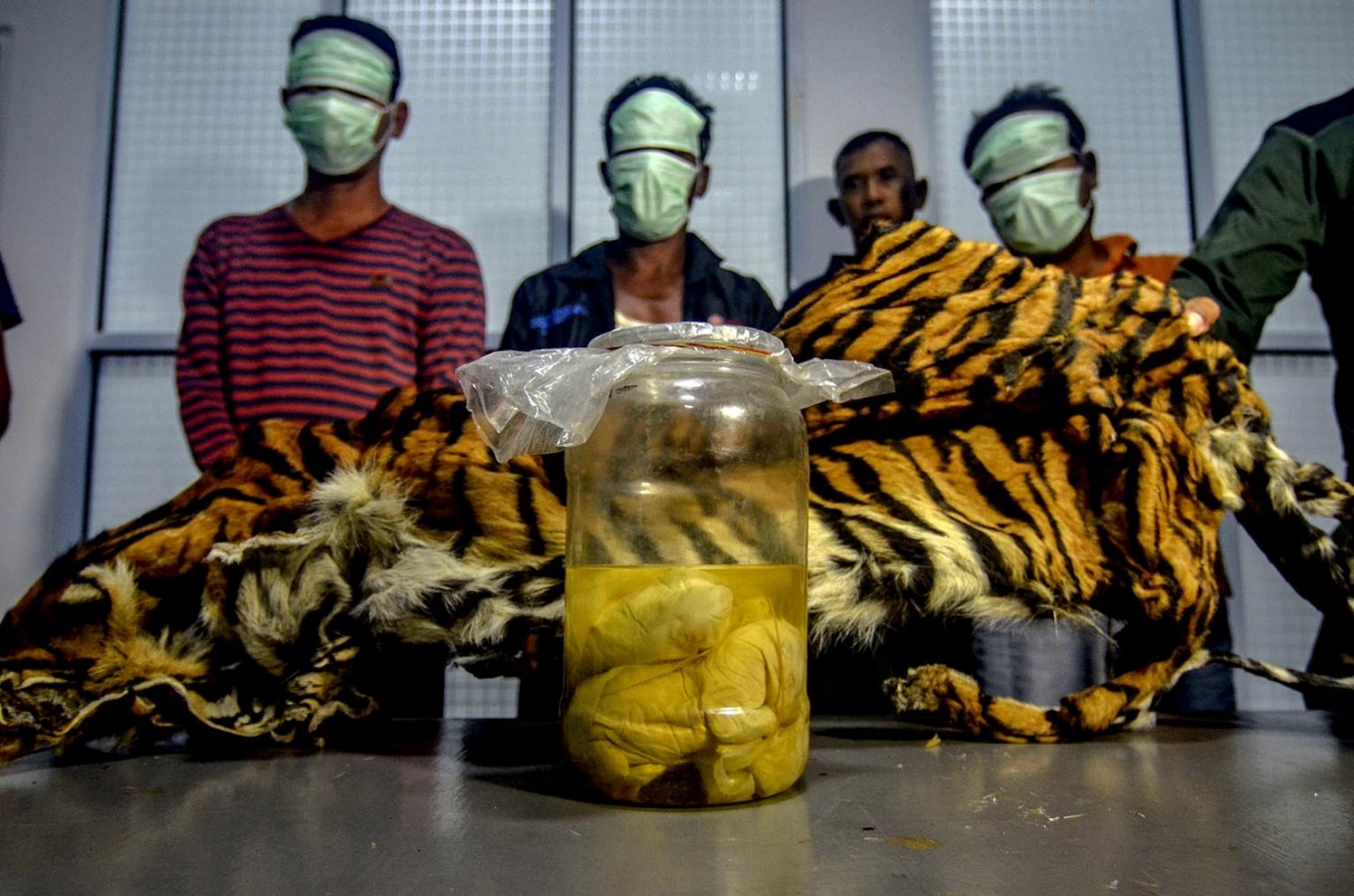
Five arrested in Riau as authorities seize four Sumatran tiger fetuses in jar, dried skin
by Rizal HarahapAuthorities have arrested five suspected poachers and traders targeting Sumatran tigers, confiscating four fetuses of the endangered species and tiger skin during raids in Riau over the weekend.
A joint team comprising personnel from the Environment and Forestry Ministry and the National Police tracked down the suspects when the former carried out an operation to crackdown on the distribution of protected wildlife animals and plants last week.
Head of the ministry’s law enforcement center region II of Sumatra, Eduward Hutapea, said the team initially received a tip-off about their location in Teluk Binjai village, Pelalawan regency.
“The team immediately looked into the case and made the arrests on Saturday,” Eduward said on Sunday.
The three, identified as MY, 49; his wife SS, 42; and S, 44; were arrested during the raid, in which the authorities also seized four tiger fetuses preserved in a plastic jar as evidence.
They said the mothers of the fetuses had been sold to brokers involved in the trading of tiger body parts, Eduward said.
“It seems they have sold parts of the tiger carcasses twice […] information says that the tiger’s body parts have been brought to other regions, such as West Sumatra,” he said adding that the tigers had been caught on Muda Island on the border of Pelalawan and Indragiri Hilir regencies on separate occasions.
The three suspects reportedly had different roles in the group.
S, for instance, was said to have been tasked with looking for buyers or middlemen. SS reportedly provided the operational fund and also did the selling, while MY was allegedly the first owner of the traded tiger skin.
During interrogation, the three also named two other people who they said were involved in the crimes, SS and TS, who allegedly had roles as the final sellers of tiger skins.
The team arrested both of them in Pelalawan’s Pangkalan Lesung subdistrict.
Authorities seized a sheet of dried adult tiger skin from SS and TS.
“The fangs and bones of the tiger were already sold in Solok regency for Rp 17 million [US$1,213],” he said.
The four preserved tiger fetuses had no relation to the seized tiger skin as they had come from different mothers that had been sold, Eduward said.
"The investigators are looking into the roles of each [alleged perpetrator] to determine which laws they violated,” he said.
Although the five are still detained as witnesses, Eduward said they could face charges under articles 40 and 21 of Law No 5/1990 on the conservation of natural resources and their ecosystems, which carry a maximum punishment of five years’ imprisonment and a Rp 100 million fine.
An official estimate from the Environment and Forestry Ministry states that as of December last year, the Sumatran tiger population stands at no more than 600 because of a loss of habitat and poaching.
Meanwhile, a report in the Nature Communication Journal estimated there were 618 adults in 2012, or a 20 percent drop from 742 in 2000.
He also said human conflict with animals had often been used by irresponsible parties for personal benefit.
"The government through the Environment and Forestry Ministry is very serious in dealing with the issues, including in law enforcement, according to prevailing laws," he said.